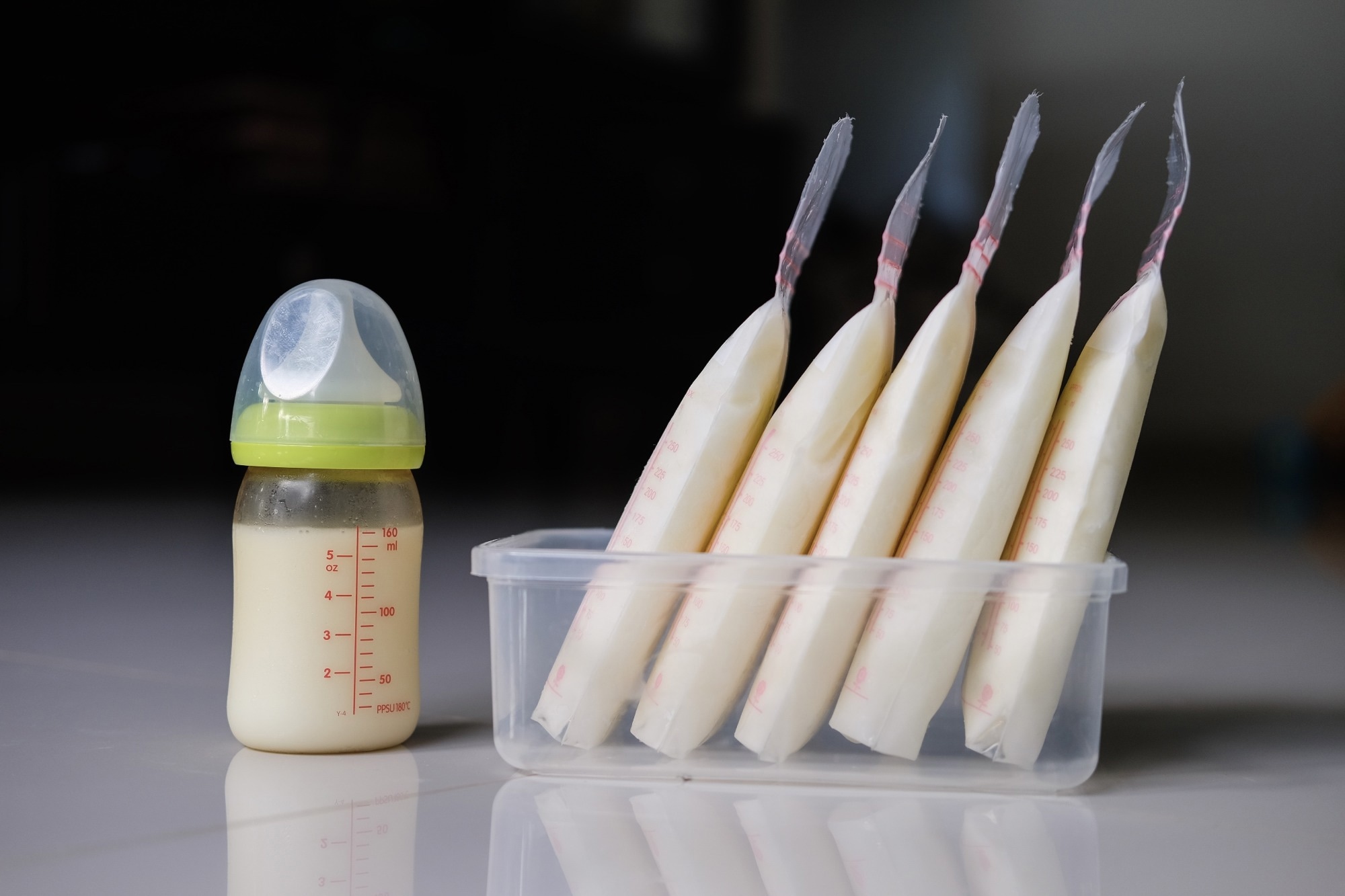Human milk is the ideal source of nutrition for infants, as it consists of bioactive factors and essential nutrients that support the growth, development, and health of the baby. Human milk oligosaccharides (HMOs), a complex group of glycans, are abundantly found in human milk and have health-promoting factors.
 Study: Associations between Maternal Nutrition and the Concentrations of Human Milk Oligosaccharides in a Cohort of Healthy Australian Lactating Women. Image Credit: Paradee Siriboon / Shutterstock.com
Study: Associations between Maternal Nutrition and the Concentrations of Human Milk Oligosaccharides in a Cohort of Healthy Australian Lactating Women. Image Credit: Paradee Siriboon / Shutterstock.com
Background
HMOs act as prebiotics and support the replication of gut bacteria that modulate the infant’s immune system. HMOs serve as soluble receptor glycoconjugates and provide a source for sialic acid, which is essential for brain development. Most research related to HMOs has been focused on their physiological and immunological properties.
It is important to understand how the variability in HMO profiles in pregnant women, along with other maternal factors, affect infant development. Several studies have shown that maternal genetic factors, particularly polymorphisms of the secretor and Lewis genes, are responsible for HMO profile variation. Other factors that cause these variations are lactation stage, environmental factors such as seasonality and geographic location, and maternal nutritional status.
It is challenging to assess the role of each dietary component in lactating women. Although some studies have investigated dietary intake during pregnancy, these studies did not focus on the lactation phase. However, one study conducted in China assessed the role of the maternal diet on the HMO profile during the postpartum period using a single-food-frequency questionnaires approach.
To date, no research related to the effect of short-term maternal dietary intake on HMO profiles is available. In addition, no studies have used gold-standard body-composition-assessment tools, such as Dual-Energy X-ray Absorptiometry (DEXA) scans, to investigate how maternal body composition and BMI affect HMO profiles.
About the study
A key objective of this study is to investigate how short-term maternal dietary intake during lactation influences the composition of HMOs in mature human milk. Scientists also accessed the association between maternal postpartum body composition and HMO profile using DEXA scanning techniques.
This observational cross-sectional study utilized human milk samples from healthy, free-living, and community-based Australian women.
The study was divided into two phases. During phase one, online surveys were obtained data on demographics and 24-hour dietary intakes, followed by a standardized milk sampling. In phase two, maternal body composition was assessed using the DEXA method.
Study findings
A total of 101 lactating women were recruited and all participants completed phase one. However, only thirty participants completed phase two.
The entire study cohort birthed a term baby. Most of the participants were Caucasian, with about 83% of infants breastfed until three months of age. About 47% of the study cohort had a normal pre-pregnancy BMI of around 23.7 kg/m2.
Most participants used dietary supplements including minerals, multivitamins, and omega-3 fatty acids. A small percentage of the study participants followed a vegan/vegetarian or gluten-free diet. Notably, 60% of the cohort consumed caffeine and 3% used alcohol in their lactating phase.
Consistent with prior studies, the current study did not observe any significant changes in HMO profiles based on maternal dietary intake and body composition. A weak positive association was found between monounsaturated fatty acids (MUFA) and singular HMOs.
Furthermore, a weak link between dietary protein and HMOs including lacto-N-fucopentaose III (LNFP) III and sialyllacto-N-tetraose c (LSTc) was observed. Interestingly, no link was found between dietary fiber and HMO synthesis.
As compared to a high-carbohydrate diet, a high-fat diet led to reduced concentrations of sialylated HMOs. Furthermore, a higher intake of glucose in the diet affected fucosylated HMOs profiles, which were not associated with a higher-galactose diet. An initial analysis established an association between dietary vitamin A and higher levels of sialylated HMOs including LSTc and LSTa.
Inconsistent correlations between B-group vitamins and fucosylated HMOs, as well as alpha-tocopherol with sialylated HMOs, were observed. Notably, a positive association between total folate/all forms of folate and the concentration of total HMOs/individual HMOs was established.
The intake of dietary folate equivalent (DFE) above the mean level of 600 μg/day was associated with increased total HMO concentrations in the milk samples. Future research must elucidate the underlying mechanism for this association.
Based on the DEXA results, no significant correlations between HMO concentrations and body composition was found. However, it is important to understand whether genetic variations of the participants overpowered the impact of maternal nutritional status.
Conclusions
The current study has some limitations including the use of self-reported data and inability to generalize the findings. Another limitation of this study is its cross-sectional study design.
Despite these limitations, the authors claim this study is the first to analyze the correlations between short-term maternal dietary intake and nutritional status during lactation. It was documented that a moderate change in maternal nutritional status does not have any significant influence on HMO concentrations.
Journal reference:
- Biddulph, C., Holmes, M., Tran, T. D., et al. (2023) Associations between Maternal Nutrition and the Concentrations of Human Milk Oligosaccharides in a Cohort of Healthy Australian Lactating Women. Nutrients. 15(9), 2093. doi:/10.3390/nu15092093